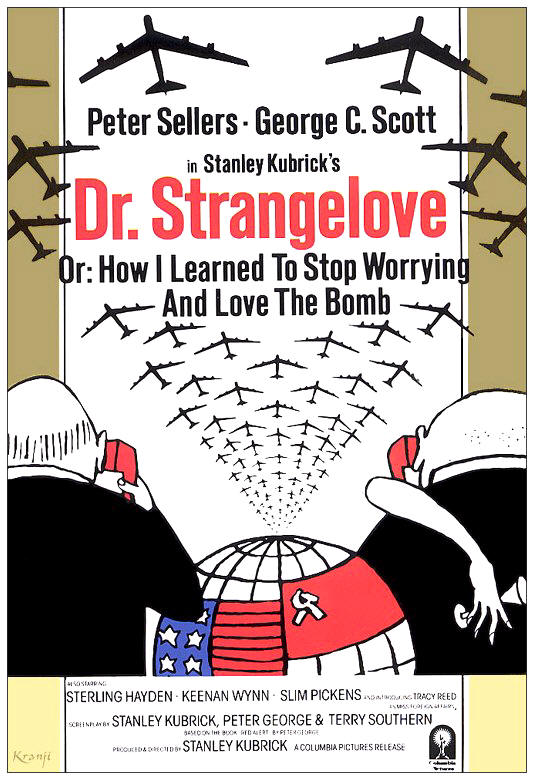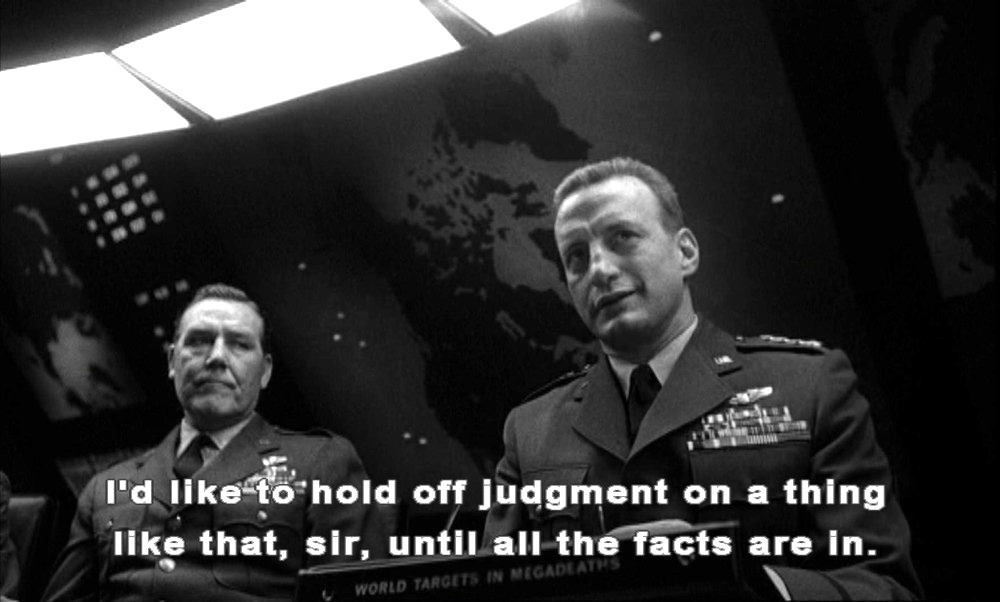|
I was blown away, you might say, by Dr. Strangelove (Subtitle: “How I Learned to Stop Worrying and Love the Bomb”).
What a great movie, and one that took me by surprise. It starts seriously but the absurd slowly takes over the reins. Most characters reveal themselves to be comically insane. It turns out to have been a satirical comedy. I expected a James Bond type movie with lots of chasing, raiding of secret lairs, and henchmen. I assumed “Dr. Strangelove” would be the name of an eccentric anti-American villain who creates a doomsday device, but in fact the character Doctor Strangelove actually works for the Americans. He is actually much less insane than some in the movie, notably than the Air Force commander who orders the nuclear first strike in retaliation for the Communists having put fluoride in Americans’ water supplies. |
The message is that the nuclear arms race had a distinct kind of insanity to it, with no possible winners, and further that nuclear war scenarios can easily, and actually will inevitably, encourage insane thinking. The one general (George C. Scott) who pleads with the president to go all-in with a nuclear first strike when they realize they cannot recall the bomber with the damaged radio system, he does actually seem to be right with his argument. He argues that it’s better to go with a first strike to knock out most Soviet capacity, and lose 20 million Americans killed, than sit and wait and lose 150 million Americans killed. His reasoning, it seems to me, is both correct and insane at the same time.
I don’t think there’s been much fear of generalized nuclear annihilation in a long while. When my political and cultural awareness were coming into focus, around the mid-1990s, I recall a little of that, left over from the Cold War days, but it was by then rapidly fading. I don’t think people born in the 1990s ever saw any of it.
In the world of the 2000s-2010s, at most there has been a low-level fear of a single, rogue mini nuclear attack by an Islamic-State-like group on a particular enemy city, but that would be a small tragedy in the grand scheme — nothing like the kind of mutual extinguishing of industrial civilization that a general ICBM nuclear exchange would’ve meant in the Cold War, as parodied in Strangelove.
This fear belongs to another era. And yet, the nuclear missiles are still there. Thousands of them…
I saw this movie for the first time last week thanks to a website called BnW Movies (which shows copyright-expired movies mostly from the 1910s-1940s for free. Strangelove, from 1964, is the latest-produced movie on the site.)


